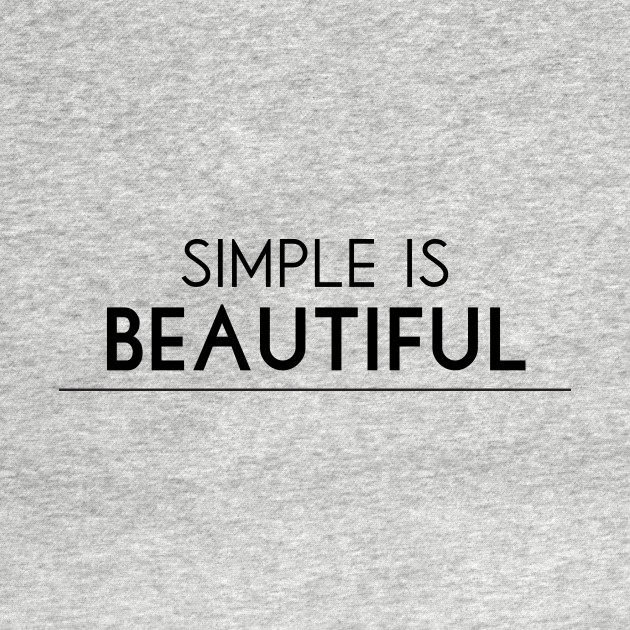Simple Is Beautiful
By Eknath Easwaran
 There is a close relationship between a house full of possessions and a heart full of desires, between a cluttered closet and a crowded schedule, between too much activity inside and too much outside, between having no place to put possessions and having no priorities for our life. These are precious clues.
There is a close relationship between a house full of possessions and a heart full of desires, between a cluttered closet and a crowded schedule, between too much activity inside and too much outside, between having no place to put possessions and having no priorities for our life. These are precious clues.
They remind us to slow down, to live in the present, to reduce the desires that drain our vitality, to clarify priorities so we can give our time and attention to what matters most. Tragically, in the press of modern life, we have managed to get backwards one of life’s most vital truths: people are to be loved; things are to be used.
If all you want is to love, your mind can be quite clear. Life becomes simple; decisions are unencumbered. There is no asking: “Should I like him or dislike him? Should I help her or hinder her? Should I move closer to him or move away?” Such questions do not arise. You’re not interested in whether someone is for you or against you; you always want to help, always want to love.
When she wants an umbrella, the ideal shopper goes into the store, picks up the item she wants, pays for it, and leaves, all in a couple of minutes. There are no distractions, no impulse buying along the way. That is how the ideal thinker is too. When it is necessary to think about a problem, the process is clear, direct, and practical. Decisions are taken without any emotional entanglement, without any sense of personal conflict at all.
Most of us think like this rarely, if at all. What we call thinking is usually worry. The uncluttered mind thinks only when necessary – and a good part of the time, believe me, it’s not necessary. Just as junk breeds junk, thoughts breed thoughts. Most thinking is about thinking. Most thoughts are about thoughts about thoughts about thoughts. Am I distracted now, or am I thinking about distractions? And now am I thinking about thinking about distractions? It goes on and on. You can spend a lifetime and never reach the end of the vagaries of the mind.
Statements like these are not even understood in the modern world, but I can give a simple illustration of an uncluttered mind. When you return from a drive, don’t you park the car, turn the engine off, and put the key in your pocket? Through many years of meditation, mantram repetition, and the other skills in my eight-point program for spiritual growth, this is what I have learned to do with my mind. When there’s no need to think, I turn it off and put the key in my pocket. When I need to think, I turn it on again. There is always plenty of petrol in the tank because it hasn’t been idling all night with vain worries and regrets.
If you sustain your enthusiasm and practice these spiritual disciplines with the same kind of determined dedication I brought to them in the midst of a very busy life, I can promise you that you will be able to remake yourself from the inside out. You will be able to tell your mind, “You may rest now. I’ll call you when I need you.”
This is not an unconscious state; it is fully wakeful. We can still think when we choose to. But if it serves no purpose, we simply let the mind rest.
This healing stillness, as it is called in Christian mysticism, is what the Buddha means by nirvana. In the language of the Bhagavad Gita, your mind will be as “motionless as the flame of a lamp in a windless place” – without a flicker of fear, anxiety, selfishness, or greed.
The richness of this state of pure awareness cannot be described. It brings limitless joy, for you know then that you are neither mind nor body but the divine core of personality which is in every creature – and which can never die.
This excerpt is from the Blue Mountain Journal archive.

